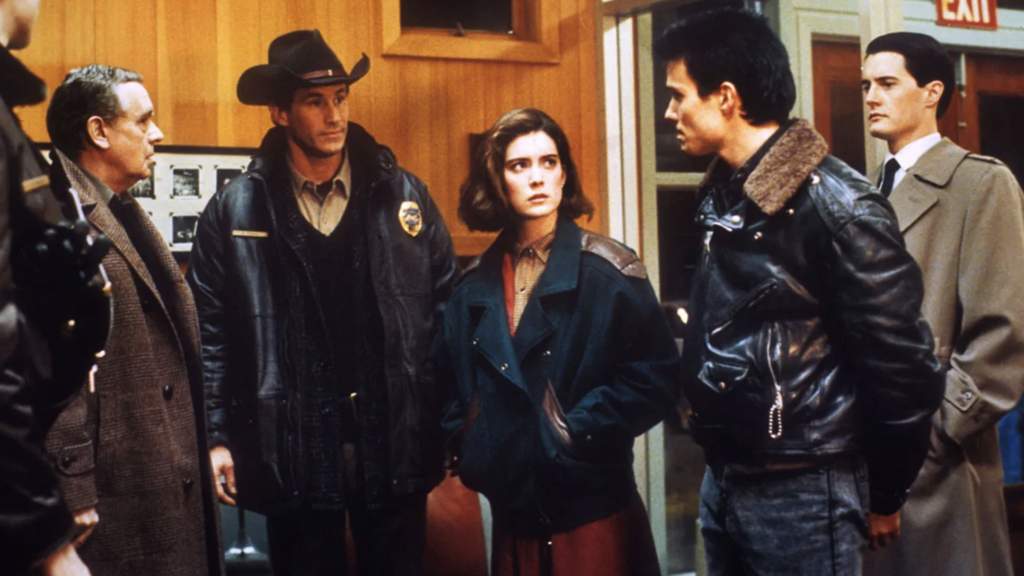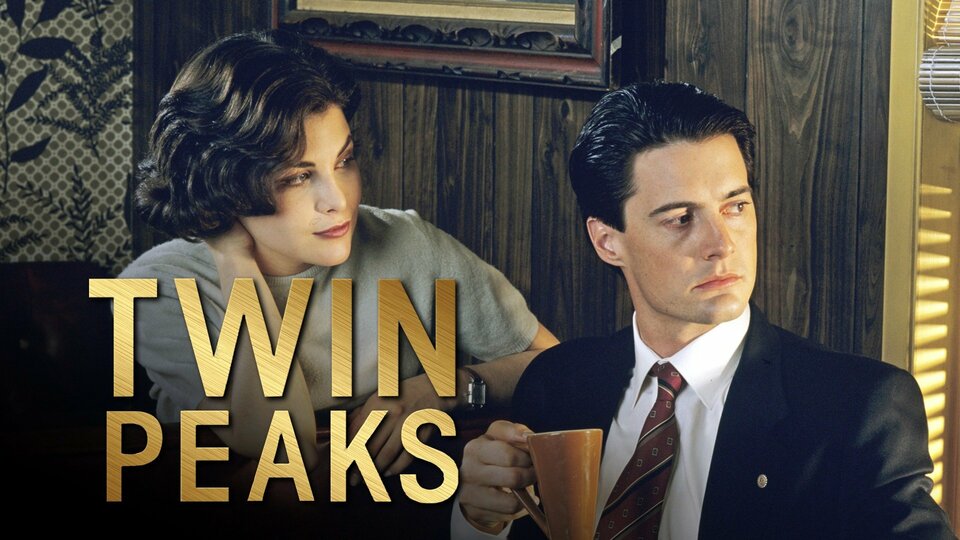
There is a man in a smiling bag
The owls are not what they seem
Without chemicals, he points
Twin Peaks, a drama series created by David Lynch and Mark Frost, made its dazzling debut on ABC on April 8, 1990, and quickly permeated the cultural zeitgeist. Combining elements of mystery, horror, and surrealism, the series explored the macabre underbelly of the seemingly idyllic town of Twin Peaks, nestled in the Pacific Northwest. Over its original two-season run and later with its revival, Twin Peaks has left an indelible mark on television and popular culture.
At the heart of Twin Peaks, ostensibly, is the investigation into the murder of homecoming queen Laura Palmer (Sheryl Lee). Special Agent Dale Cooper (Kyle MacLachlan) is dispatched to the town to unravel this central mystery, setting off a chain of increasingly bizarre and unsettling events. However, reducing the series to merely a murder mystery does it a disservice. Twin Peaks uses the trope of whodunit as a springboard to delve into profound themes such as the duality of human nature, the battle between good and evil, and the fragility of societal facades. The non-linear storytelling, punctuated by surreal and dreamlike sequences, sets Twin Peaks apart from conventional television dramas. This approach may appear erratic, but it proves a goldmine for viewers looking for intricate narratives and deeper meanings. By introducing abrupt genre shifts and puzzling scene transitions, Lynch and Frost challenge viewers to actively engage with the story, making the experience both demanding and rewarding.
David Lynch’s direction in Twin Peaks is nothing short of groundbreaking. Known for his work in film, Lynch brought a cinematic quality to television that was unprecedented at the time. The show’s atmospheric cinematography, coupled with Angelo Badalamenti’s haunting score, immerses viewers in the eerie, mysterious aura of Twin Peaks. Lynch’s signature use of visual surrealism—seen in Cooper’s dream sequences and the otherworldly Black Lodge—compels viewers to question the nature of reality itself. More importantly, Twin Peaks is renowned for its rich use of symbolism, which often comes in the form of riddles and metaphors. For instance, Owls, a recurring symbol in Twin Peaks, symbolize mystery, hidden knowledge, and the presence of otherworldly forces. The owls are often linked to the supernatural aspects of the town. And Fire, a powerful and destructive symbol throughout the series, represents both the literal and metaphorical destruction. It is often associated with the evil entity BOB and the malevolent forces within the Black Lodge. The layer of symbolism adds depth to the show’s narrative and leaves room for viewer’s interpretation.
It’s like I’m having most beautiful dream and the most horrible nightmare all at once. -Donna Hayward
The acting ensemble in Twin Peaks is nothing short of stellar. Kyle MacLachlan’s portrayal of Special Agent Dale Cooper is iconic, blending quirkiness with a steadfast moral compass. Michael Ontkean as Sheriff Harry S. Truman and Mädchen Amick as Shelly Johnson, among others, deliver performances that anchor the series in a palpable reality despite its surreal elements. The series is renowned for its rich tapestry of eccentric characters, each with their own depth and backstory. From the enigmatic Log Lady to the tortured soul of Leland Palmer, each resident of Twin Peaks contributes to the overall narrative complexity, enriching the show’s storytelling. This focus on character development, even for minor roles, helps create an interconnected world that feels incredibly real, anchoring the series in a palpable reality despite its surreal elements.
Twin Peaks has left an indelible mark on television and popular culture. Its influence is evident in numerous subsequent TV shows that blur the lines between television and film, leverage intricate and unconventional storytelling, and delve into dark, complex themes. Without Twin Peaks, masterpieces like The Sopranos, True Detective, and Lost may not have existed.
